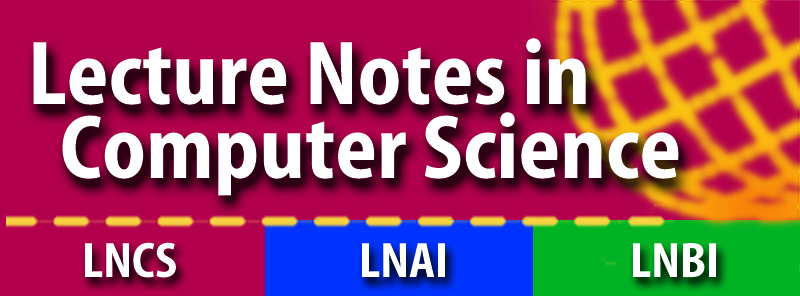We are pleased to invite you to submit papers for the 22nd International Conference on Runtime Verification (RV'22), which will take place as part of the Computational Logic Autumn Summit (CLAS 2022) in Tbilisi, Georgia, from September 28-30, 2022.
Dates
| Paper submission: | |
| Notification: | |
| Camera-ready: | |
| Conference: | 28-30 September 2022 |
Objectives and Scope
Runtime verification is concerned with the monitoring and analysis of the runtime behaviour of software and hardware systems. Runtime verification techniques are crucial for system correctness, reliability, and robustness; they provide an additional level of rigor and effectiveness compared to conventional testing and are generally more practical than exhaustive formal verification. Runtime verification can be used prior to deployment, for testing, verification, and debugging purposes, and after deployment for ensuring reliability, safety, and security and for providing fault containment and recovery as well as online system repair.
The topics of the conference include, but are not limited to:
- specification languages for monitoring
- monitor construction techniques
- program instrumentation
- logging, recording, and replay
- combination of static and dynamic analysis
- specification mining and machine learning over runtime traces
- monitoring techniques for concurrent and distributed systems
- runtime checking of privacy and security policies
- metrics and statistical information gathering
- program/system execution visualization
- fault localization, containment, resilience, recovery and repair
- systems with learning-enabled components
- dynamic type checking and assurance cases
- runtime verification for autonomy and runtime assurance
Application areas of runtime verification include cyber-physical systems, autonomous systems, safety/mission critical systems, enterprise and systems software, cloud systems, reactive control systems, health management and diagnosis systems, and system security and privacy.
Papers
There are four categories of papers which can be submitted: regular, short, tool demo, and benchmark papers. Papers in each category will be reviewed by at least three members of the Program Committee.
- Regular Papers (up to 16 pages, not including references) should present original unpublished results. We welcome theoretical papers, system papers, papers describing domain-specific variants of RV, and case studies on runtime verification.
- Short Papers (up to 8 pages, not including references) may present novel but not necessarily thoroughly worked out ideas, for example emerging runtime verification techniques and applications, or techniques and applications that establish relationships between runtime verification and other domains.
- Tool Demonstration Papers (up to 8 pages, not including references) should present a new tool, a new tool component, or novel extensions to existing tools supporting runtime verification. The paper must include information on tool availability, maturity, selected experimental results and it should provide a link to a website containing the theoretical background and user guide. Furthermore, we strongly encourage authors to make their tools and benchmarks available with their submission.
- Benchmark Papers (up to 8 pages, not including references) should describe a benchmark, suite of benchmarks, or benchmark generator useful for evaluating RV tools. Papers should include information as to what the benchmark consists of and its purpose (what is the domain), how to obtain and use the benchmark, an argument for the usefulness of the benchmark to the broader RV community and may include any existing results produced using the benchmark. We are interested in both benchmarks pertaining to real-world scenarios and those containing synthetic data designed to achieve interesting properties. Broader definitions of benchmark e.g. for generating specifications from data or diagnosing faults are within scope. We encourage benchmarks that are tool agnostic, especially if they have been used to evaluate multiple tools. We also welcome benchmarks that contain verdict labels and with rigorous arguments for correctness of these verdicts, and benchmarks that are demonstrably challenging with respect to the state-of-the-art tools. Benchmark papers must be accompanied by an easily accessible and usable benchmark submission. Papers will be evaluated by a separate benchmark evaluation panel who will assess the benchmarks relevance, clarity, and utility as communicated by the submitted paper.
Submissions
All papers and tutorials will appear in the conference proceedings in an LNCS volume. Submitted papers and tutorials must use the LNCS/Springer style detailed here: http://www.springer.de/comp/lncs/authors.html. Springer encourages authors to include their ORCIDs in their papers. The volume is currently scheduled to appear in the LNCS “Formal Methods” subline.
Papers must be original work and not be submitted for publication elsewhere. Papers must be written in English and submitted electronically (in PDF format) using the EasyChair submission page here: https://easychair.org/conferences/?conf=rv2022.
The page limitations mentioned above include all text and figures, but exclude references. Additional details omitted due to space limitations may be included in a clearly marked appendix, that will be reviewed at the discretion of reviewers, but not included in the proceedings.
At least one author of each accepted paper and tutorial must register and present the contribution at RV 2022 (in-person or hybrid).
